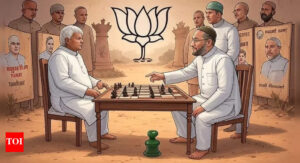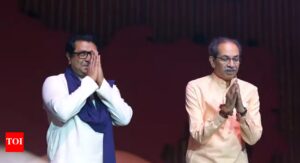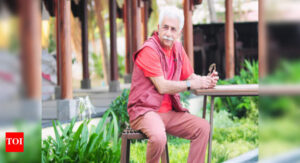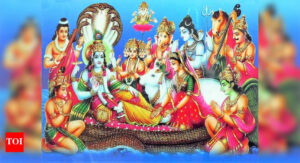Ahead of their time: Basheer’s women | Kochi News
By: Jisa JoseThough he naturally maintains moderation in his writing, Vaikom Muhammad Basheer often becomes eloquent when it comes to women. His words brim with love, compassion and playful mischief. He deeply observed the world of women and the female mind. At the heart of his work are women’s stories—vivid portraits of their diverse lives, adventures, and survival.The women in Basheer’s stories, with their rural wisdom and simple perspectives, transform dull everyday life into a cheerful experience, as seen in Pathummayude Aadu. The novel, subtitled Pennungalude Budhi (Cleverness of Women), celebrates not bookish knowledge, but the lived intelligence women draw from experience. The writer stands in awe as a witness to the marvel of their world. Even ordinary events—like a goat’s birth, eating habits, or economic planning—appear new and fascinating to Basheer.His women often hold subtle authority over men, humorously undermining patriarchal norms. Basheer’s stance isn’t shaped by academic feminism but by a lived, compassionate understanding of women’s realities. His gender awareness stems from integrating stories he saw and heard—naturally, equitably.Many of Basheer’s women feel ahead of their time. Ayesha in Ntuppuppakkoranendarnnu (1953), insists on finishing her BA before marrying. Sharp, socially aware and humorous, she has a scientific and liberal view of religion. While Nisar Ahmed tries to ‘modernize’ Kunhipathumma with love, Ayesha does it through friendship, education, and clarity. Her romance is merely a backdrop to a woman’s transformation. Through Ayesha’s character in 1953, Basheer articulated a profoundly modern perspective on women’s freedom. This vision remains pertinent today and in retrospect, considering society’s limited advancement, Basheer’s foresight proves astonishing.Basheer’s women aren’t confined to kitchens—they are smart and adaptive. When Kunhipathumma loses her home, she exclaims, “It’s a disaster, but we can meet people, breathe fresh air, stand in sunlight…” Her father cooks because neither she nor her mother knows how. In Poovampazham, Jameela Begum, without shame, suggests hiring a maid, noting she didn’t earn a BA to cook. Saramma in Premalekhanam (1943) remains iconic—bold, witty, independent, and non-religious in her love. Jameela Beebi in Poovampazham, who famously responds to a declaration of deep love with “Glad to hear, what other news from the town?”, is a miniature version of Saramma. Basheer’s works are filled with many such clever women.In Viddikalude Swargam, the protagonist, drawn by the inviting gaze of a prostitute, follows her into her home—only to flee in dismay upon witnessing the squalor within. “Was it for this that she looked at me with such a heart-wrenching longing?” he wonders. Indeed, the piercing gazes of women—whether brimming with love, desire, or maternal tenderness—lie at the heart of Basheer’s narratives. These looks linger, unsettling us, stirring laughter, sorrow, and pain. Through them, his women confront men, awaken them, and guide them toward seeing women as equals.No other Malayalam writer has portrayed the individuality and depth of women with such gravity or sincerity as Basheer(The writer has authored several books and is the principal of Kunnamangalam Govt Arts & Science College, Kozhikode)





